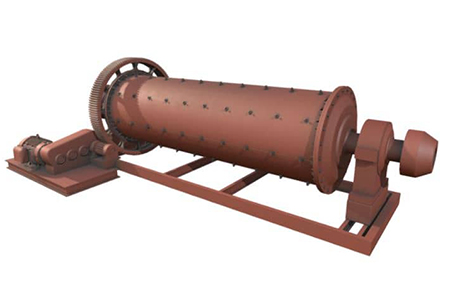What is the purpose of a ball mill?
Views: 1496 Update Date:Nov 08 , 2023
A ball mill is a type of grinder or milling machine used to grind, blend, and sometimes mix materials in various industries. Its primary purpose is to reduce the size of solid materials into finer particles, which can be used in various processes and applications. The specific purposes of a ball mill include:
Grinding and Pulverizing: Ball mills are commonly used for grinding and pulverizing materials such as minerals, ores, chemicals, ceramic raw materials, and other substances. By rotating the cylindrical container (the "ball mill") and adding grinding media (typically steel balls or ceramic balls), it effectively crushes and grinds the materials into smaller particles, which can be further processed or used in downstream operations.
Mixing and Blending: Ball mills are often used to mix or blend different components or materials. This is particularly important in industries like ceramics, pharmaceuticals, and chemicals, where precise mixing and homogenization are required to achieve the desired properties or chemical reactions.
Size Reduction: Ball mills can be used to reduce the size of large particles, turning them into a more manageable and fine powder. This is valuable in industries like mining and metallurgy, where crushing and grinding of ore materials are necessary for subsequent extraction processes.
 Particle Size Control: Ball mills allow for control over the particle size distribution of the final product. By adjusting factors such as the milling time, speed, and the type and size of grinding media, manufacturers can achieve the desired particle size and distribution for their product.
Particle Size Control: Ball mills allow for control over the particle size distribution of the final product. By adjusting factors such as the milling time, speed, and the type and size of grinding media, manufacturers can achieve the desired particle size and distribution for their product.
Material Processing: In various industrial applications, ball mills are used to process materials into the desired form for further manufacturing or use. This can include making pigments, cement, ceramics, and other processed materials.
Research and Laboratory Testing: Ball mills are essential tools in research and development, as well as quality control in various industries. They enable scientists and engineers to study material properties, test different formulations, and evaluate the effects of various processing conditions.
Overall, ball mills are versatile machines that serve a wide range of purposes in different industries. They are widely used in fields like mining, ceramics, pharmaceuticals, and many others where size reduction, mixing, and particle size control are critical to the manufacturing or research processes.
Prev: What is the function of the grinding ball?
Next: What are forged steel balls?
Grinding and Pulverizing: Ball mills are commonly used for grinding and pulverizing materials such as minerals, ores, chemicals, ceramic raw materials, and other substances. By rotating the cylindrical container (the "ball mill") and adding grinding media (typically steel balls or ceramic balls), it effectively crushes and grinds the materials into smaller particles, which can be further processed or used in downstream operations.
Mixing and Blending: Ball mills are often used to mix or blend different components or materials. This is particularly important in industries like ceramics, pharmaceuticals, and chemicals, where precise mixing and homogenization are required to achieve the desired properties or chemical reactions.
Size Reduction: Ball mills can be used to reduce the size of large particles, turning them into a more manageable and fine powder. This is valuable in industries like mining and metallurgy, where crushing and grinding of ore materials are necessary for subsequent extraction processes.

Material Processing: In various industrial applications, ball mills are used to process materials into the desired form for further manufacturing or use. This can include making pigments, cement, ceramics, and other processed materials.
Research and Laboratory Testing: Ball mills are essential tools in research and development, as well as quality control in various industries. They enable scientists and engineers to study material properties, test different formulations, and evaluate the effects of various processing conditions.
Overall, ball mills are versatile machines that serve a wide range of purposes in different industries. They are widely used in fields like mining, ceramics, pharmaceuticals, and many others where size reduction, mixing, and particle size control are critical to the manufacturing or research processes.





